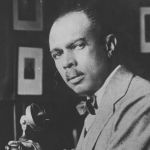It was a bright cold starry night on Lake Chippewa.
Lake Chippewa was a “living” lake then,
though soon afterward it would choke and die.
In the bright cold morning after we could spy
them only through a patch of ice brushed clear of snow.
Scarcely three feet below,
they were oblivious of us.
Together beneath the ice in each other’s arms.
Jean-Marie’s head rested on Troy’s shoulder.
Their hair had floated up and was frozen.
Their eyes were open in the perfect lucidity of death.
Calmly they sat upright. Not a breath!
It was 1967, there were no seat belts
to keep them apart. Beautiful
as mannequins in Slater Brothers’ window.
Faces flawless, not a blemish.
Yet—you could believe
they might be breath-
ing, for some trick
of scintillate light revealed
tiny bubbles in the ice,
and a motion like a smile
in Jean-Marie’s perfect face.
How far Troy’d driven the car onto Lake Chippewa
before the ice creaked, and cracked, and opened
like the parting of giant jaws—at least fifty feet!
This was a feat like his 7-foot-3.8-inch high jump.
In the briny snow you could see the car tracks
along the shore where in summer sand
we’d sprawl and soak up sun
in defiance of skin carcinomas to come. And you could see
how deftly he’d turned the wheel onto the ice
at just the right place.
And on the ice you could see
how he’d made the tires spin and grab
and Jean-Marie clutching his hand Oh oh oh!
The sinking would be silent, and slow.
Eastern edge of Lake Chippewa, shallower
than most of the lake but deep enough at twelve feet
to suck down Mr. Dupuy’s Chevy
so all that was visible from shore
was the gaping ice wound.
And then in the starry night
a drop to -5 degrees Fahrenheit
and ice freezing over the sunken car.
Who would have guessed it, of Lake Chippewa!
Now in the morning through the swept ice
there’s a shocking intimacy just below.
With our mittens we brush away powder snow.
With our boots we kick away ice chunks.
Lie flat and stare through the ice
Seeing Jean-Marie Schuter and Troy Dupuy
as we’d never seen them in life.
Our breaths steam in Sunday-morning light.
It will be something we must live with—
the couple do not care about our astonishment.
Perfect in love, and needing no one to applaud
as they’d been oblivious of our applause
at the Herkimer Junior High prom where they were
crowned Queen and King three years before.
(In Herkimer County, New York, you grew up fast.
The body matured, the brain lagged behind,
like the slowest runner on the track team
we’d applaud with affection mistaken for teen mockery.)
No one wanted to summon help just yet.
It was a dreamy silence above ice as below.
And the ice a shifting hue—silvery, ghost-gray, pale
blue—as the sky shifts overhead
like a frowning parent. What!
Lake Chippewa was where some of us went ice-fishing
with our grandfathers. sometimes, we skated.
Summers there were speedboats, canoes. There’d been
drownings in Lake Chippewa we’d heard
but no one of ours.
Police, fire-truck, ambulance sirens would rend the air.
Strangers would shout at one another.
We’d be ordered back—off the ice of Lake Chippewa
that shone with beauty and onto the littered shore.
By harsh daylight made to see
Mr. Dupuy’s 1963 Chevy
hooked like a great doomed fish.
All that privacy yanked upward pitiless
and streaming icy rivulets!
We knew it was wrong to disturb the frozen lovers
and make of them mere bodies.
Sweet-lethal embrace of Lake Chippewa
But no embrace can survive thawing.
One of us, Gordy Garrison, would write a song,
“Too Young to Marry But Not Too Young to Die”
(echo of Bill Monroe’s “I Traced Her Little Footprints
in the Snow”), which he’d sing with his band the Raiders,
accompanying himself on the Little Martin guitar
he’d bought from his cousin Art Garrison
when Art enlisted in the U.S. Navy and for a while
it was all you’d hear at Herkimer High, where the Raiders
played for Friday-night dances in the gym, but then
we graduated and things changed and nothing more
came of Gordy’s song or of the Raiders.
“TOO YOUNG TO MARRY BUT NOT TOO YOUNG TO DIE”
was the headline in the Herkimer Packet.
We scissored out the front-page article, kept it for decades in a
bedroom drawer.
(No one ever moves in Herkimer except
those who move away, and never come back.)
The clipping is yellowed, deeply creased,
and beginning to tear. When some of us stare
at the photos our hearts cease beating—oh, just a beat!
It was something we’d learned to live with—
there’d been no boy desperate to die with any of us.
We’d have accepted, probably—yes.
Deep breath, shuttered eyes—yes, Troy.
Secret kept yellowed and creased in the drawer,
though if you ask, laughingly we’d deny it.
We see Gordy sometimes, and his wife, june. Our grand-
children are friends. Hum Gordy’s old song
to make Gordy blush a fierce apricot hue
but it seems cruel, we’re all on blood
thinners now.


















Comment form: